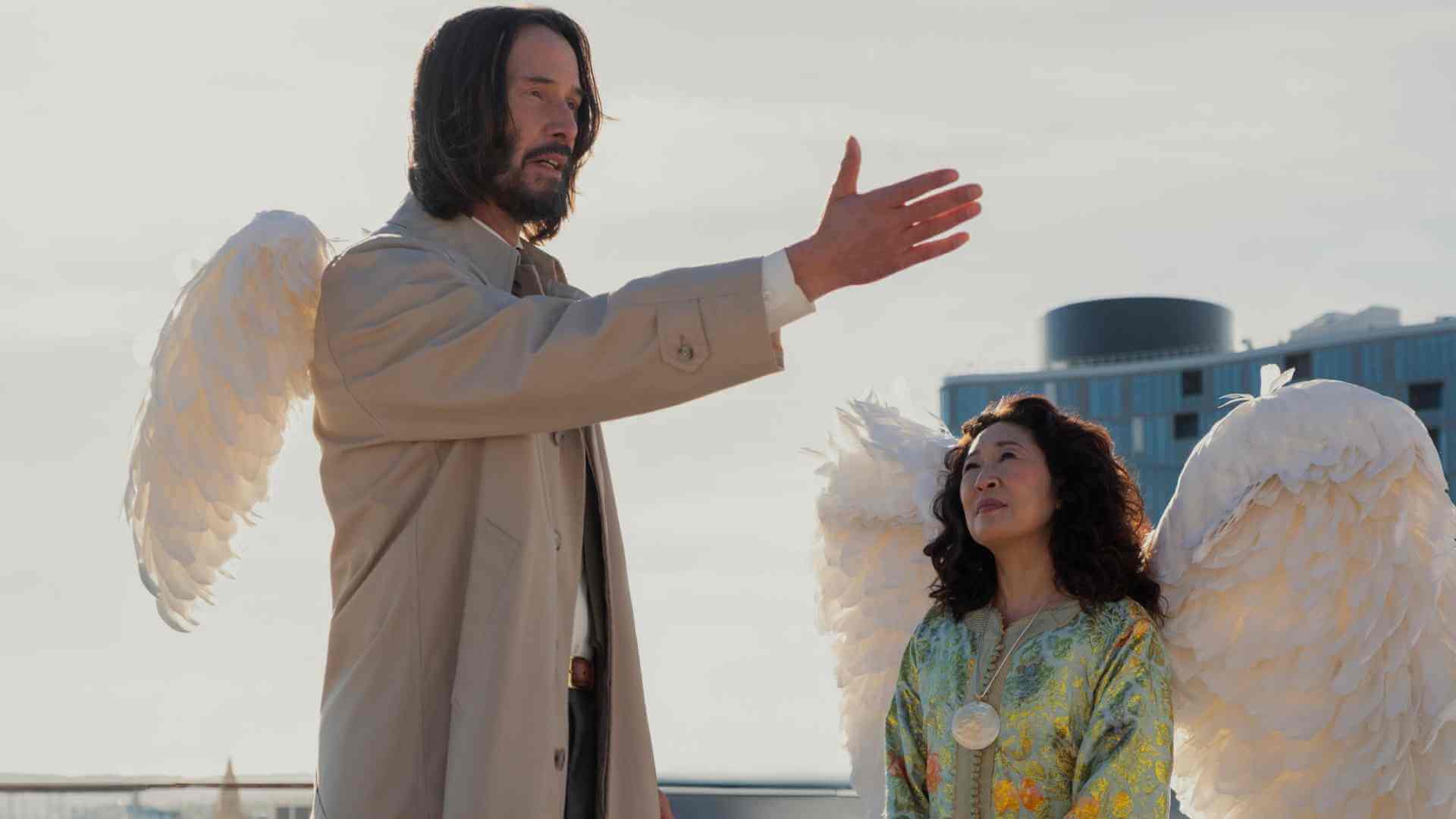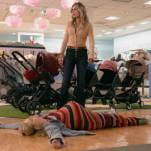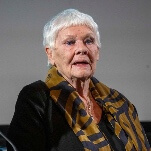It has now been 115 years since author E.M. Forster delivered one of fiction’s most withering depictions of the haves’ view of the have-nots. Dismissing the misfortunes of a lowly clerk, Howards End‘s rich, callous Paul Wilcox sternly warns his far more compassionate wife Margaret to resist the urge to have “a sentimental attitude over the poor…The poor are poor, and one’s sorry for them, but there it is.” More than a century later, economic inequality is even worse, and the wealthy’s attitude toward the rest of us remains contemptuous. It’s so enraging, it almost makes you want to laugh. Aziz Ansari’s feature directorial debut, Good Fortune, taps into that mixture of anger and humor—although the emphasis is definitely on the latter.
With nods to It’s A Wonderful Life, Wings Of Desire and Trading Places, Good Fortune tells the story of three very different characters who enter each other’s orbit: a gig worker, a successful tech bro, and an angel. But despite its good intentions and myriad ideas, the comedy disappoints—perhaps because its writer-director cannot fully recognize his own blind spots when chronicling the plight of those struggling to make ends meet.
Good Fortune stars Ansari as Arj, a documentary editor in Los Angeles who hasn’t had steady work in far too long, reduced to living in his car and doing Taskrabbit-like jobs. At one of these parttime gigs, he meets Elena (Keke Palmer), who’s employed at a soulless big-box store and is trying to rally her coworkers to unionize. The two hit it off, but how can a penniless guy like him take her out for a good time?
The answer seems to appear in the form of Jeff (Seth Rogen), a rich venture capitalist who has a luxurious pad overlooking the city. Blissfully residing in his bubble of privilege, Jeff hires Arj to organize his garage, but since this budding mogul needs a personal assistant, Arj convinces the guy to try him out on a temporary basis. Now finally able to afford a motel, Arj is hopeful that his prospects are changing—until a minor infraction angers Jeff enough that he impulsively fires him.
All the while, Gabriel has been watching. Played by Keanu Reeves, he’s an angel whose job it is to ensure that people don’t get into fatal car accidents by texting behind the wheel. (One of Good Fortune‘s bleakest jokes is that God needs someone purely dedicated to this single task since so many stupid humans do it all the time.) Envious of other angels who have more “important” responsibilities, like attending to lost souls, Gabriel takes it upon himself to intervene once Arj begins wondering if there’s any point in living. In classic Frank Capra fashion, Gabriel offers to show Arj all the bright possibilities ahead for him. But Ansari subverts It’s A Wonderful Life‘s message that every life has value by unexpectedly placing Arj in an enviable scenario: He finds himself able to trade places with Jeff, quickly deducing that, seriously, being rich is just the best.
Other twists and turns await, Good Fortune flipping the fates of its haves and have-nots, allowing both to truly see how the other half lives. Pointedly, Ansari sets his movie in Los Angeles, a city where the wealthy and the working-class are often awkwardly thrust into the same spaces, one constantly serving the needs of the other. It’s a film in which parking tickets, automated delivery robots, rising apartment rents, and dead-end jobs are depressingly ubiquitous—Good Fortune never lets you forget how hard it is to afford living in a metropolis. Not that Ansari has any illusions about how “ennobling” poverty is—nor does he argue that the wealthy aren’t as happy as they appear. Eventually, Arj, Jeff, and Gabriel learn the cold, hard truth we already know: Money can’t buy everything, but it sure as hell beats being poor.
The film’s anti-fairytale tone leads to some stinging jokes, although not as many as one would hope. Part of the problem is that neither Arj nor Jeff is especially well-drawn, forcing Ansari and Rogen to fall back on their reliable onscreen personas. Ansari plays Arj with his familiar combination of sweetness, swagger, and comic exasperation, while Rogen depicts Jeff as an amiable goofball.
Good Fortune‘s most intriguing character is actually Gabriel. This hapless angel comes from a long line of fish-out-of-water cinematic figures delighted and bewildered by human customs. (He really loves tacos!) But Reeves endearingly elevates the clichés, illuminating Gabriel’s heavenly essence despite becoming marooned on Earth as punishment for interfering in Arj’s affairs. Ever since Bill & Ted’s Excellent Adventure, Reeves has radiated a winsome dim-bulb innocence, and at 61, he still conveys that ethereal joy. If Good Fortune laments the widening gap between rich and poor, it also cares about the quality of one’s work and how we draw self-worth from our jobs. Once he’s stripped of his angel assignment, Gabriel discovers that, even more than having dough, having a reason for being makes all the difference.
Unfortunately, the sharp point of view and creative risk-taking present in Ansari’s acclaimed series Master Of None (co-created with Alan Yang) are nowhere to be seen in this pedestrian comedy full of convoluted plot points. Good Fortune starts and stops, moving from one tangent to another, failing to lock into a propulsive forward momentum. But the film’s main weakness is something far more fundamental: It is hard to watch Good Fortune, made by and starring well-paid Hollywood stars, and not conclude that, on some level, they don’t really understand what the gig economy looks and feels like.
This suspicion comes through most strongly in Ansari’s simplistic construction of Elena, who is meant to be a saintly symbol of progressive activism at a time when greedy corporations are clamping down on unions. Good Fortune diagnoses this country’s crippling economic inequality, but when it stumbles toward a possible solution—at least for the likes of Arj and Elena—the conclusions are painfully, almost insultingly naïve. Ansari is no doubt sorry for the poor, but the limply uplifting message he leaves them with hardly feels sufficient. All things being equal, we’d be better off eating cake.
Director: Aziz Ansari
Writer: Aziz Ansari
Starring: Seth Rogen, Aziz Ansari, Keke Palmer, Sandra Oh, Keanu Reeves
Release Date: October 17, 2025








































